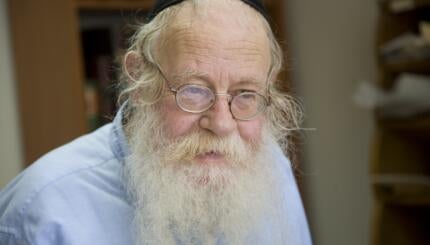Reprinted with permission from Maimonides’ Introduction to His Commentary on the Mishnah, translated and annotated by Fred Rosner, and published by Jason Aronson.
After [dividing the Mishnah into] these six categories, which contain all the precepts of the Torah, were collected, [Judah the Prince], saw fit to subdivide each general category into its topics as appropriate. He called each topic a tractate. Then he further subdivided the subjects within each tractate into parts, and called each part a chapter. After that, he segregated the subjects of each chapter into yet smaller parts so that it is easy to remember them and to teach them. He called each of these smaller parts of a chapter a halakhah (law).
He subdivided the subjects of Seder Zera’im (agriculture) as I will describe. He commenced with tractate Berakhot (blessings). The reason for this is that when an experienced physician wishes to maintain the state of health of a healthy individual, he first attends to the diet as the primary therapy.
Similarly, this great Sage saw fit to begin [the Mishnah] with Berakhot, since anyone who wishes to eat is not permitted to do so until he has recited a benediction over the food. Therefore he found it appropriate to begin the Mishnah with tractate Berakhot in order to supply the necessary preparation for partaking of food. So that nothing be lacking in any aspect, he speaks about all the benedictions that a person is obligated to recite both over edibles and for fulfilling other precepts in the Torah. There is no commandment that every person is obligated to fulfill every day except for the recitation of the Shema. It would not be correct to speak of the blessings of the Shema before speaking of the Shema itself, and, therefore, he begins with the words; “From when may one recite the Shema…” and everything pertaining thereto.
Following this, he returned to the main subject of the order, and that is to speak of the commandments pertaining to the produce of the earth. He began with tractate Pe’ah (corners of the fields), which follows Berakhot, because all the offerings that a person is obligated to provide concerning produce are not required until after their cutting. But the obligation of Pe’ah exists while the produce is still in the ground, and for this reason he speaks of it first. After Pe’ah he placed tractate Demai (questionably tithed produce), because the poor have a privilege therein, just as they do in Pe’ah. So, too, did they state: “One may give Demai produce to the poor for food.”
With your help, My Jewish Learning can provide endless opportunities for learning, connection and discovery.
After Demai comes tractate Kilayim (mixed different species), because this is their sequence in Scripture in the portion: “Ye shall be Holy, Thou shalt not wholly reap the corner of thy field” (Leviticus 19:9) and following this is “Thou shalt not sow thy field with two kinds of seed” (Leviticus 19:19). He arranged tractate Shevi’it (the Sabbatical year) after Kilayim, although it would have been more been more correct for tractate Orlah (prohibited young trees) to follow Kilayim, because this is their sequence in the Torah, were it not that he knew that Orlah is not one of the precepts that a person is compelled to fulfill, since as long as he has not planted any trees there is no obligation of Orlah. The Sabbatical year, however is obligatory for everyone. Furthermore, the Sabbatical year has its own individual section in the Torah and therefore he discusses tractate Shevi’it first.
He placed tractate Terumah (levies, heave offerings) after Shevi’it because the Great Heave Offering is the first gift that one removes from the produce. He placed tractate Maaser Rishon (the first tithe) after Terumah because the former follows Terumah in the order of the scriptural text. After Maaser Rishon he placed Maaser Sheni (the second tithe), according to their proper sequence. He placed tractate Hallah (dough offering) next because after one has separated the aforementioned offerings from the produce namely, Heave Offering, First Tithe, and Second Tithe, then one grinds it, makes it into flour, and kneads it into dough at which time it becomes subject to the law of Hallah.
After he completed the discussions regarding grains and its offerings, he began speaking about fruits and thus speaks of Orlah after tractate Hallah. After this is tractate Bikkurim (first fruits) because it is in this order that Scripture arranged them: Orlah in Leviticus (19:23) and Bikkurim in the portion When thou shalt come (Deuteronomy 26:1-11). He thus completed the subdivision of the subjects in Seder Zera’im into eleven tractates.
Mishnah
Pronounced: MISH-nuh, Origin: Hebrew, code of Jewish law compiled in the first centuries of the Common Era. Together with the Gemara, it makes up the Talmud.
Shema
Pronounced: shuh-MAH or SHMAH, Alternate Spellings: Sh'ma, Shma, Origin: Hebrew, the central prayer of Judaism, proclaiming God is one.
Torah
Pronunced: TORE-uh, Origin: Hebrew, the Five Books of Moses.


